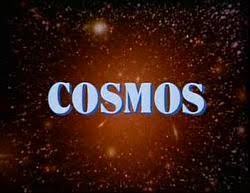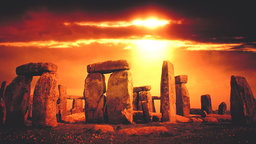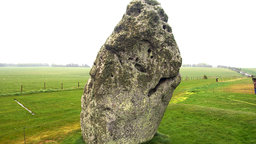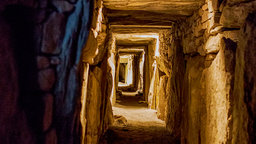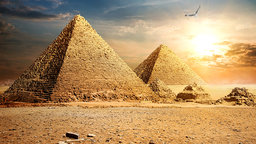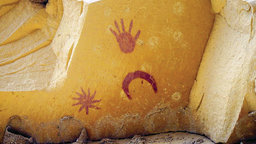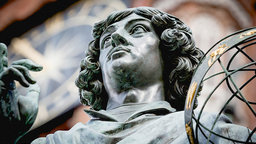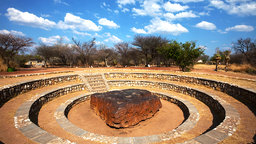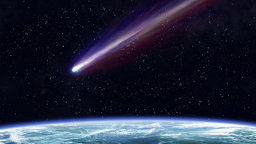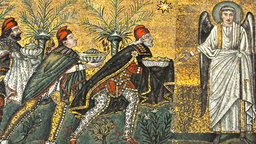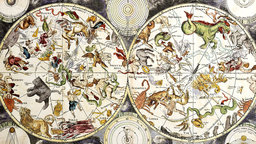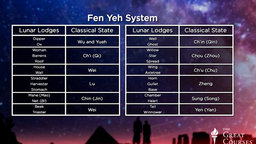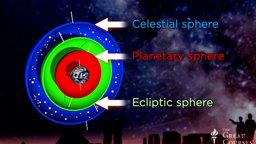Cosmos 1980
As I mentioned on the main The Great Courses page, I like this very much, and would recommend it as a good introduction to the history of astronomy and of the history of the universe.
Comos (1980) - Carl Sagal
This is the general description of the course/series. It's pretty bald for the ground they covered (anti-nuke preaching aside).
Astronomer Carl Sagan leads us on an engaging guided tour of the various elements and cosmological theories of the universe.
Episode 1 The Shores of the Cosmic Ocean 
I really liked Episode 1 as it starts to describe Stonehenge and importance of tracking the motions of the sun to its northern and southern extremes at the solstices for tracking the seasons, and thus why building alignments to determine this were important.
Carl Sagan examines our planet's place in the universe by leading us on a journey from Earth to Deep Space.
Episode 2 One Voice in the Cosmic Fugue 
This episode was pretty good, including an in-depth discussion of the various theories on the possible alignments at the henge, which are of interest to me particularly because my brother-in-law grew up very near Stonehenge.
Carl Sagan examines the origin, development, and complexity of life on Earth and speculates on the possibility of life developing elsewhere in the universe.
Episode 3 Harmony of the Worlds 
This episode was fine, and I would watch it (and did) as part of the series, but not quite as interesting as Episode 2.
After briefly looking at the pseudoscience of astrology, Carl Sagan examines the history of astronomy from ancient times through Ptolemy to Johannes Kepler.
Episode 4 Heaven and Hell 
I always find the pyramids interesting, and this was no exception. I was interested in his take on the shafts pointing to the stars since I'd read a book on this previously, and was surprised to find that these shafts were not as regular as I had imagined and that one could not actually site the stars from inside of the tomb as I had previously believed.
Carl Sagan examines the nature of comets before turning to a close look at the planet Venus.
Episode 5 Blues for a Red Planet 
Similar to the pyramids, I've always had a fasciantion with the Anasazi, and was disappointed to hear that the sun-dagger had been damaged by tourism. It's still a place that is on my bucket list to see if I ever get the chance.
Carl Sagan looks at the search for life on Mars from the speculations of Percival Lowell and H.G. Wells to the arrival of the Viking probes.
Episode 6 Travellers' Tales
Interesting, but to me, not as interesting as some of the other episodes.
Carl Sagan looks at the planets Jupiter and Saturn by examining the work of Galileo, Huygens, and the Voyager probes.
Episode 7 The Backbone of Night 
An above-average episode for me, as I was unaware that primitive man used the iron from meteors to prior to developing the technology to actual produce iron.
Carl Sagan looks at the work of ancient Greek scientists and astronomers including Thales, Anaximander, Democritus, and Pythagoras.
Episode 8 Journeys in Space and Time 
Again, interesting, but not as much as some of the others. It's really hard to image seeing an eclipse or comet and not know what it was, but on some level I can accept that if you didn't know it would be frightening.
Carl Sagan explains scientific concepts like relativity and examines the possibility of time travel.
Episode 9 The Lives of the Stars 
Another pretty good episode, partly just because I appreciate it that not all men of science immediately discount anything of faith or in the Bible. Much like in Cosmos, there are excellent descriptions of the faithful aiding our understanding of the stars.
Carl Sagan examines the life cycle of stars from their creation to their deaths.
Episode 10 The Edge of Forever 
Pretty good, but constellation history is covered everywhere, so a lot of this wasn't really new to me.
Carl Sagan focuses on the origin of the universe by discussing the Big Bang, Galaxies, Dimensions, and the expansion of the universe.
Episode 11 The Persistence of Memory 
Pretty good, but again, like Episode 10, much of this is covered elsewhere so it feels less valuable, though it's exclusion would also seem strange. Worth watching.
Carl Sagan examines life on earth discussing genes, DNA, the brain, and human social development.
Episode 12 Encyclopaedia Galactica 
Astrology. What more is there to say? It is historically important, and it's interesting that they don't deal with precession, but otherwise? Meh.
Carl Sagan examines the possibility extraterrestrial life and discusses his skepticism about UFOs.
Episode 13 Who Speaks for Earth? 
Carl Sagan considers the significance of science and discuss the importance of human survival in the nuclear age.
